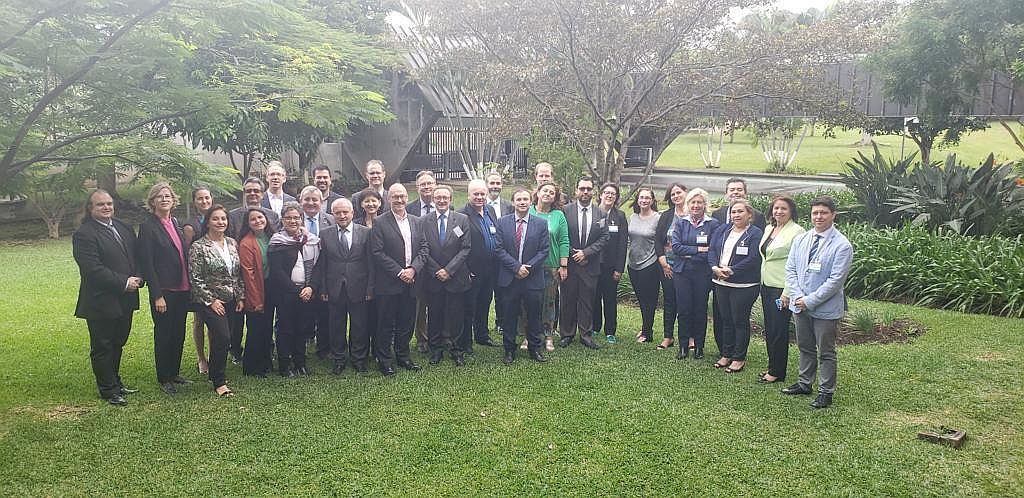
The 3rd Policy Workshop, the 4th WG meeting of the EU-CELAC Working Party on Research Infrastructures in San José, Costa Rica, 27-28 November 2019, was dedicated to the Governance of Research Infrastructures under the perspective of scientific collaboration between Europe and Latin American and Caribbean countries.
LifeWatch ERIC Chief Technical Officer and former Chair of ERIC Forum, Dr Juan Miguel González-Aranda, explored the theme of how effective governance models and management practices can support the internationalisation of RIs and emphasised the importance of working together to establish methodologies that boost bi-regional cooperation.
Hosted in the National Centre for High Technology (CeNAT) and organised by Federico Torres R&D Director at Ministry of Science, Technology & Telecommunications of Costa Rica, the workshop was opened by Adam Tyson, Head of Unit Research and Industrial Infrastructures, DG Research and Innovation, of the European Commission, and Fernando Amestoy, Chair of the Latin America and the Caribbean Working Group on Research Infrastructures, Director of the Institute Polo Tecnológico de Pando, Uruguay.
“It’s always inspiring to be involved in these two-way exchanges with Latin America and the Caribbean through close cooperation in the context of biodiversity and ecosystem research and sustainable management topics, in a climate change scenario where researchers, decision makers and citizen scientists come together to address this global societal challenge… and we Research Infrastructures in the field of biodiversity and ecosystem research have much to share – all together, we all benefit,” said Juan Miguel González-Aranda.
LifeWatch ERIC has been involved in this collaboration since the first meeting of the EU-Latin America and Caribbean Working Group on Research Infrastructures organised by the Senior Officials Meeting (SOM) Joint Initiative on Research and Innovation (JIRI), held in Brussels, Belgium, on 14 March 2017. At that meeting, LifeWatch ERIC was ranked 1st position of interest among the rest of Research Infrastructures.
Subsequently, representatives from LAC came to the LifeWatch ERIC Headquarters at Doñana Natural Park and Seville, Spain, on 25-27 June 2019, in an inter-regional gathering organized by LifeWatch ERIC and promoted by the Spanish Ministry of Science, Innovation and Universities, and the European Commission.
At the same time, LifeWatch ERIC is also partner in the recently approved H2020-INFRA SSUP-RES INFRA proposal, as a model of a distributed e-Infrastructure to consolidate active collaboration of existing EU-LAC Communities of Practice.
The Community of Latin American and Caribbean States (CELAC) was launched in 2010, with the vision of enhancing knowledge on research and innovation activities, projects, results and funding opportunities to strategically deepen the social, political and economic links between the two regions. It comprises 33 countries, and represents approximately 600 million people.